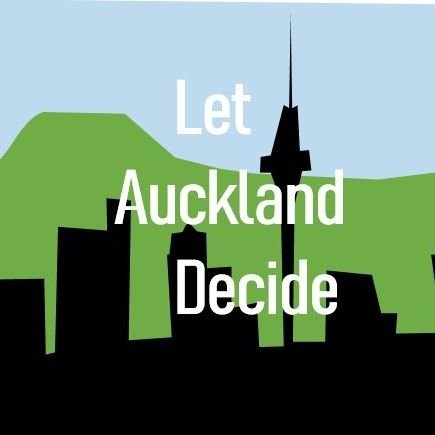
Yes to more social housing, but housing quality would be even better
Dr Charmaine ‘Ilaiū Talei is a senior lecturer in Te Pare, School of Architecture and Planning, and Associate Dean Pacific for the Faculty of Creative Arts and Industries at the University of Auckland, Waipapa Taumata Rau. Photo: Lynn Grieveson.

Election result could help change intensification plans and PC78
Summary: National, Act and New Zealand First are committed to fixing the problems with the intensification legislation, which will change the course of PC78. Labour and the Greens are sticking with their mandated MDRS and NPS-UD rules.
Let Auckland Decide is a petition signed by over 25 community organisations which opposes the blanket 3-storey and 6-storey intensification across Auckland that Plan Change 78 and Government legislation have imposed. It's not that intensification is bad, it just needs to be done thoughtfully, taking into account infrastructure and a range of other factors. The Government enacted the changes before the flooding, and did so without effective local consultation. Those are two of the reasons why we think the MDRS legislation needs to be repealed and the NPS-UD needs, at a minimum, a major revision.
We are also concerned about the RMA reform legislation which, unbeknown to most Aucklanders, has transferred Auckland's planning powers to an undemocratically appointed committee.
This election provides a one-off opportunity to change the legislation. Over the past week we have managed to collate various responses from five parties. The results are here https://bit.ly/PartyPoliciesIntensificationPC78
You'll see from the brief report that Labour and the Greens have doubled down on the intensification legislation, and support undemocratically appointed committees deciding on all zoning and other planning decisions in the future.
National, Act and New Zealand First all see what the problems are, and are committed to fixing them.
There is a clear path for change with respect to this issue. Please pass this to your neighbours, friends and wider family who may not have done a PC78 submission but may nevertheless be badly affected by the intensification plans as they currently stand.

Let Auckland Decide: an update on election housing intensification issues
To re-cap, we’ve coalesced behind the petition, placed an advertisement in the Herald, started a Facebook page, emailed many Auckland candidates, and most importantly have been going to public meetings and meeting personally with candidates who have made the time to engage.
For Let Auckland Decide intensification is the big issue, and having organised the petition, we are obliged to provide you with an update.
The issue is complex, for us and for candidates, and won’t be solved in the throes of an election. Discussions have brought these three questions into focus:
1. Will you cancel the Medium Density Residential Standards (MDRS) and repeal the MDRS legislation?
2. Will you either repeal or update the National Policy Statement – Urban Development (NPS-UD)?
3. Will you restore Auckland Council’s planning powers which have been removed by the Resource Management Act (RMA) reforms?
The following is what the parties (those scoring over 5% in polls) have so far indicated they would do. If we get more information we will let you know.
ACT. We have had direct conversations with ACT. ACT never voted for the intensification legislation in the first place. They understand the problems of the MDRS and continue to oppose it. They do not support all of the NPS-UD. They support reinstating the RMA, which will restore Auckland Council’s planning powers (at least until a revision or replacement is developed).
National. We have had direct conversations with National. National’s policy is to make the MDRS optional for councils. They do not support all of the NPS-UD but do support intensification around identified centres with the right infrastructure in place. They will meet with Council and stakeholders after the election to fix the problems caused by the MDRS and the NPS-UD. They support reinstating the RMA, which will restore Auckland Council’s planning powers (at least until a revision or replacement is developed).
NZ First. We have had brief conversations and email exchanges with two of NZ First’s Auckland candidates. We expect NZ First’s housing policy will be announced this week. They support reinstating the RMA, which will restore Auckland Council’s planning powers (at least until a revision or replacement is developed).
Greens. Our Greens’ input comes from public meetings and their written response. At meetings, the Greens have deflected the core questions and have defaulted to statements about favouring community input and strong community development. They support the MDRS and the NPS-UD, but say there are a number of aspects that they believe should be improved.
Labour. Our Labour response comes from input in public meetings and the email response of a Labour MP to the questions put to him by one of our members. In public meetings candidates have doubled down on their intensification legislation, have responded to comments about a lack of community engagement by saying this was provided by the Select Committee process, and have not acknowledged that councils have lost their planning powers through the RMA reforms. Labour does not agree with making the MDRS optional for Auckland and says that Qualifying Matters provide councils the opportunity to determine where intensification should occur.
We remain open to talk to all political parties after the election. As you can see from the above, the parties who are engaged most with the intensification issues at the moment are ACT and National. These two parties have indicated their willingness to continue a constructive dialogue should they be in a position to form a Government on October 15.

Did National really just simply sell off state houses?
National State Housing The Spinoff Max Rashbrooke Getty Images Archi Banal 25 Sept 2023